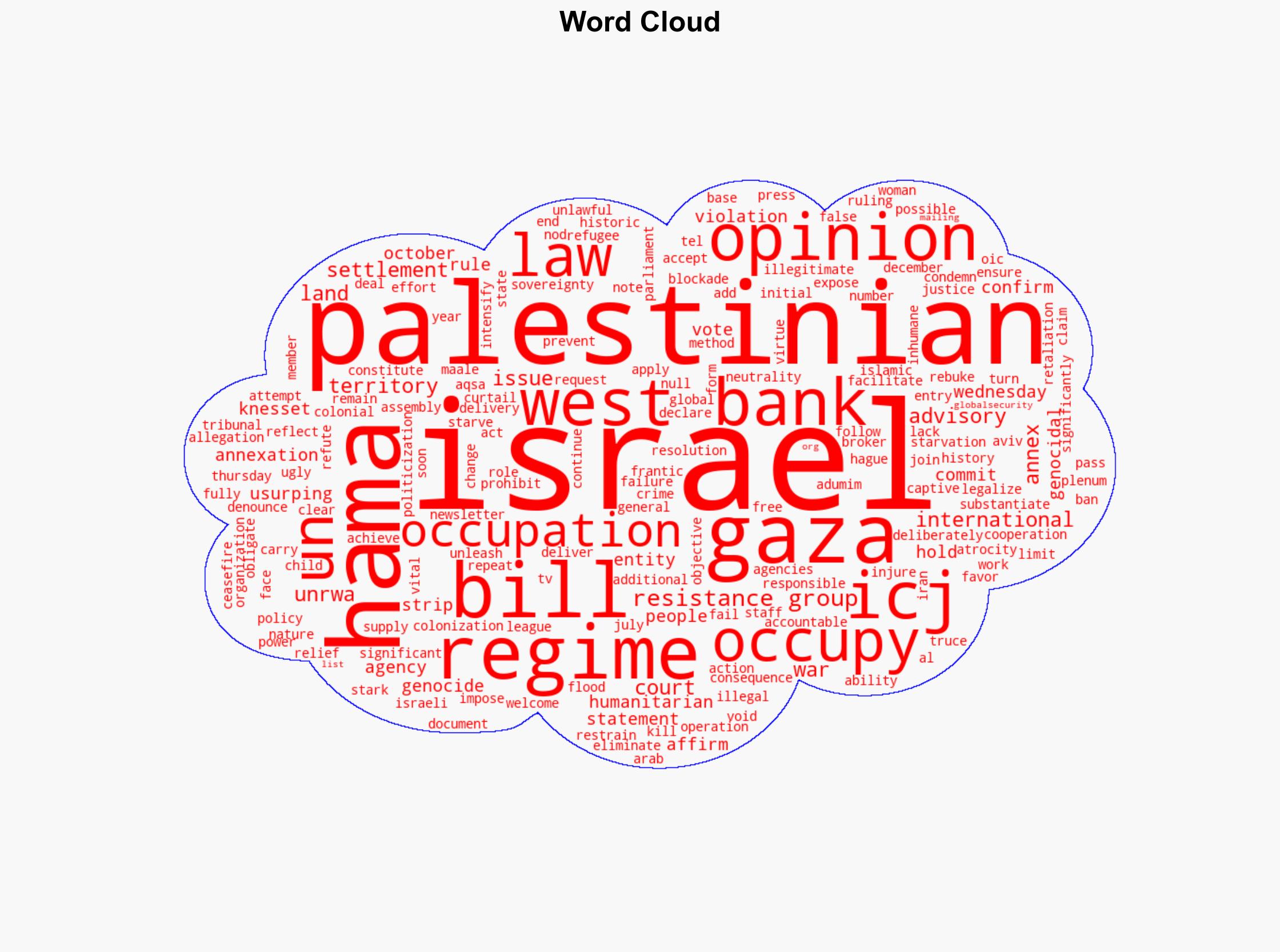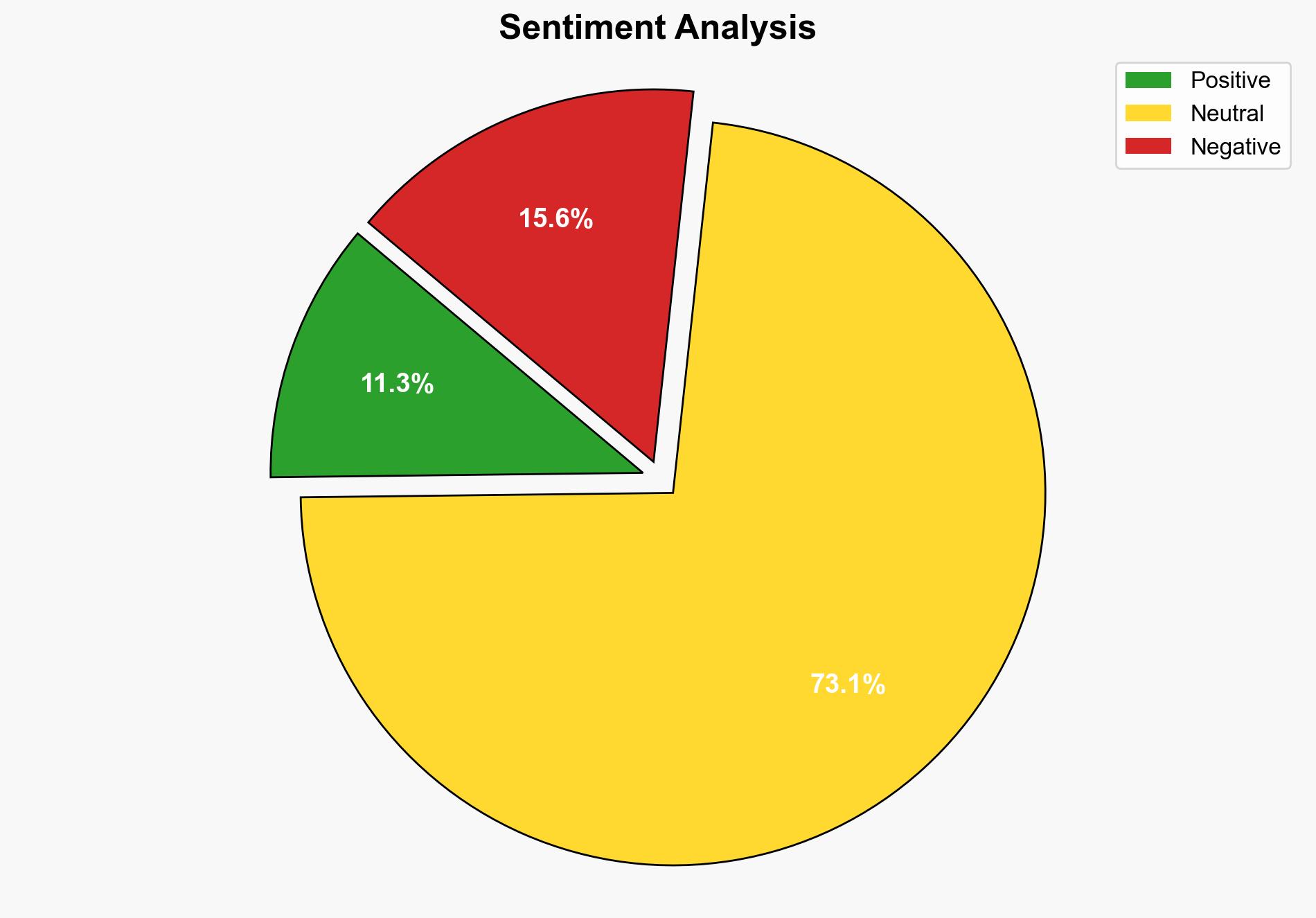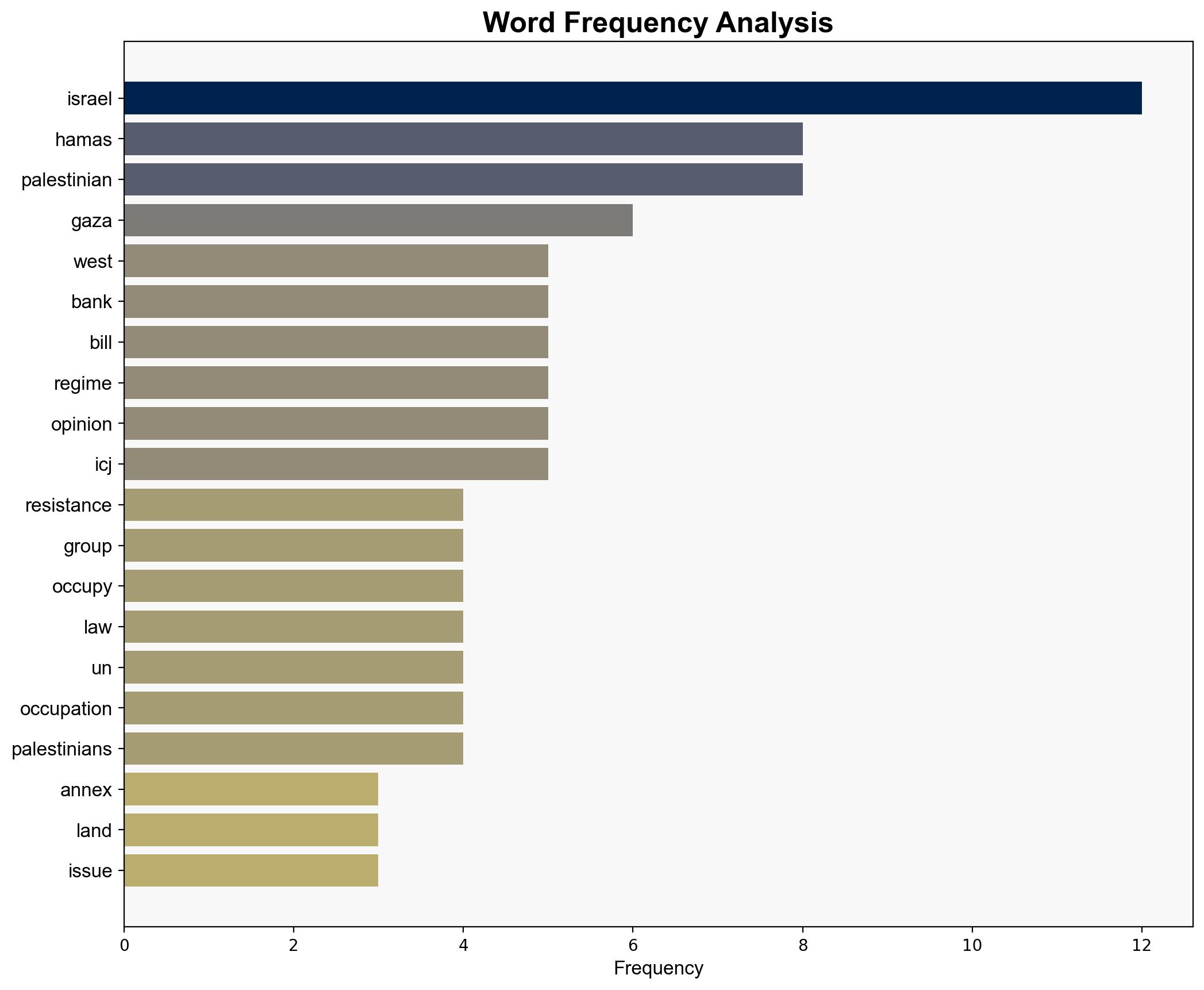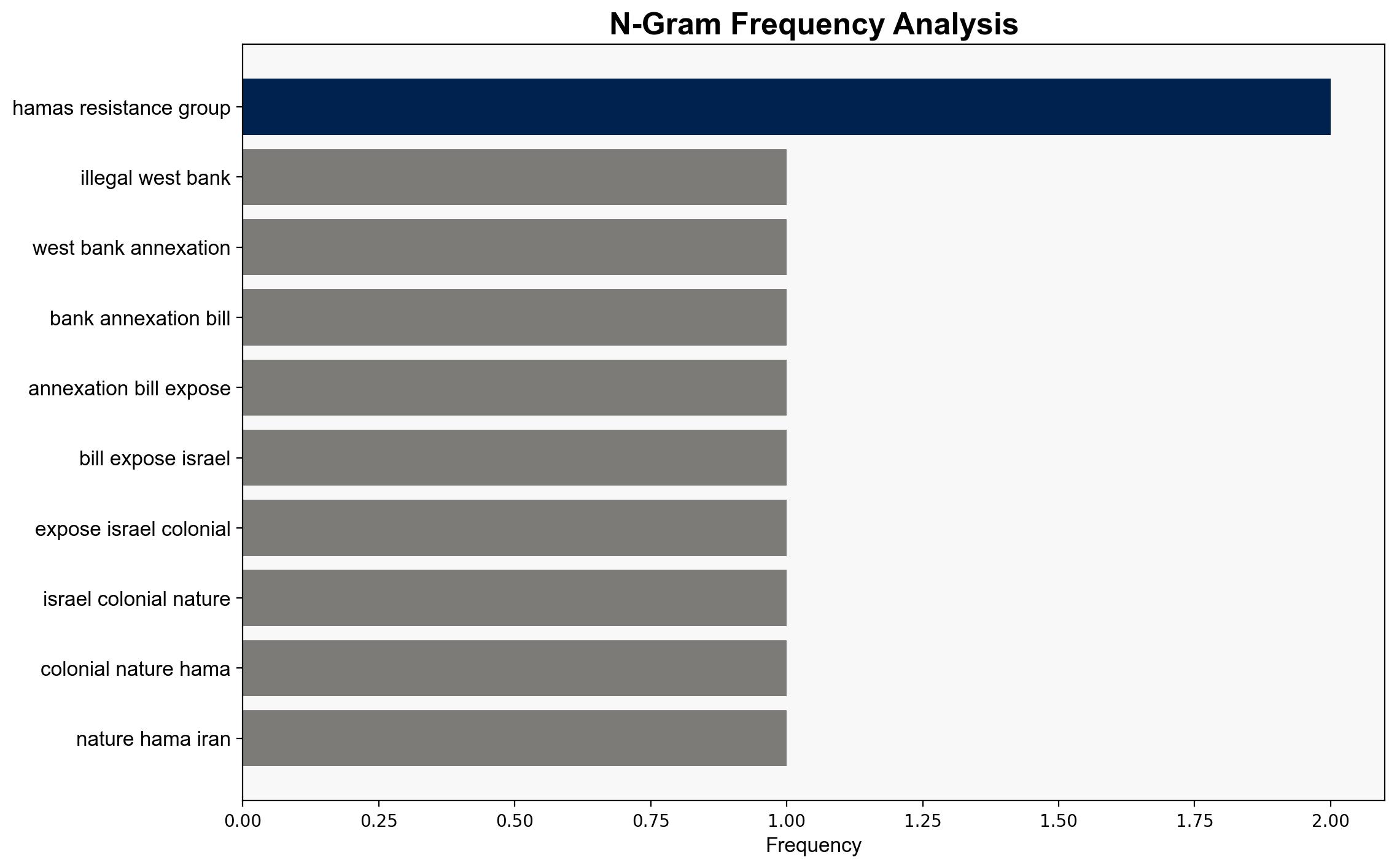Illegal West Bank annexation bills expose Israel’s ‘colonial’ nature Hamas – Globalsecurity.org
Published on: 2025-10-24
Intelligence Report: Illegal West Bank annexation bills expose Israel’s ‘colonial’ nature Hamas – Globalsecurity.org
1. BLUF (Bottom Line Up Front)
The most supported hypothesis is that the proposed annexation bills are part of a broader Israeli strategy to solidify control over contested territories, reflecting a long-term geopolitical maneuver rather than an immediate colonial expansion. Confidence level: Moderate. Recommended action: Engage in diplomatic efforts to address potential violations of international law and mitigate regional tensions.
2. Competing Hypotheses
1. **Hypothesis A**: The annexation bills are a strategic move by Israel to formalize control over the West Bank, driven by security concerns and domestic political pressures.
2. **Hypothesis B**: The annexation bills are primarily a symbolic gesture to appease hardline political factions within Israel, with little intention of immediate implementation.
Using the Analysis of Competing Hypotheses (ACH) 2.0, Hypothesis A is better supported due to historical patterns of settlement expansion and legislative efforts aligning with security narratives. Hypothesis B is less supported as it lacks substantial evidence of symbolic-only intentions.
3. Key Assumptions and Red Flags
– **Assumptions**:
– Israel’s actions are primarily security-driven.
– International response will be limited to diplomatic condemnation.
– **Red Flags**:
– Potential underestimation of international legal repercussions.
– Overreliance on historical patterns without considering current geopolitical shifts.
– **Blind Spots**:
– Possible internal dissent within Israel regarding annexation.
– Unanticipated regional alliances forming in response.
4. Implications and Strategic Risks
– **Geopolitical**: Increased tensions with Palestinian groups and neighboring countries, potentially leading to escalated conflict.
– **Economic**: Risk of sanctions or economic penalties from international bodies.
– **Psychological**: Heightened radicalization and recruitment by extremist groups using annexation as a rallying point.
– **Cyber**: Potential for cyber retaliation from state and non-state actors opposing annexation.
5. Recommendations and Outlook
- Engage in multilateral diplomacy to address potential violations of international law and promote dialogue between conflicting parties.
- Monitor regional alliances and shifts in international support to anticipate changes in geopolitical dynamics.
- Scenario Projections:
- Best: Diplomatic resolution leading to a freeze on annexation efforts.
- Worst: Escalation into broader regional conflict.
- Most Likely: Continued legislative efforts with intermittent international condemnation.
6. Key Individuals and Entities
– **Benjamin Netanyahu**: Prime Minister of Israel, key proponent of annexation.
– **Hamas**: Palestinian resistance group, vocal opponent of annexation.
– **International Court of Justice (ICJ)**: Issued advisory opinion on the legality of occupation.
7. Thematic Tags
national security threats, geopolitical strategy, international law, regional stability





